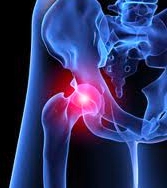The first out of 6,500 federal DePuy Pinnacle hip replacement lawsuits went to trial this week. Injured plaintiffs allege that they suffered premature metal hip implant failure and metal blood poisoning from the defective DePuy Pinnacle hip devices.

What is the Problem with DePuy Pinnacle Hip?
The DePuy Pinnacle hip implant is made from an alloy of Cobalt and Chromium. The metal-on-metal components leads to the release of metal debris by the grinding action of the ball upon the cup during normally activity. The release of metal, particularly Cobalt and Chromium, is especially inflammatory to the local tissue and causes early failure of the hip replacement and metal blood poisoning.
First Bellwether Texas Trial
The first DePuy Pinnacle trial began on Tuesday, in the U.S. District Court for the Northern District of Texas, where the federal litigation is centralized for coordinated pretrial proceedings as part of an MDL, or multidistrict litigation.
A complaint filed by Kathleen Herlihy-Paoli was selected as one in a series of “bellwether” cases scheduled in the DePuy Pinnacle MDL.
The 58 year old from Montana, received a DePuy Pinnacle metal hip in 2009, but had to have it removed in 2011, because of pain and after testing showed she had extremely high blood levels of cobalt and chromium. Her cobalt blood levels were 85 times above normal range.
Trial Day 1
During the first day of trial, plaintiff attorneys said that Johnson & Johnson and the DePuy Orthopaedics subsidiary aggressively overmarketed the hip replacements, lied about complication rates associated with metal-on-metal hips and failed to warn people that they were being used as “guinea pigs.”
Johnson & Johnson’s plan to convince doctors the metal-on-metal version of its Pinnacle hip implants were safe amounted to “marketing run amok.”
According to Mark Lanier, one of the lawyers for Herlihy-Paoli, J&J’s DePuy unit ignored signs the Pinnacle hips suffered from design flaws and assured doctors the metal devices worked “99.9 percent of the time.”
DePuy responded that Herlihy-Paoli’s problems were the result of the Pinnacle’s poor positioning when it was implanted.
Trial Day 2
According to Lanier, Johnson & Johnson knew as early as 2001 the metal-on-metal version of its Pinnacle artificial hips might produce metal debris that could cause metal poisoning.
Orthopedic Doctors Complaints
A doctor who consulted with J&J’s DePuy unit on the Pinnacle hip made the company aware in February 2001 that the device would require extensive testing of implant patients to see whether they had metal debris in their bloodstreams, Mark Lanier, said in his questioning of ex-DePuy President Andrew Ekdahl.
In an internal memo, DePuy officials said Dr. Thomas Schmalzried warned the potential release of metal ions was a “major issue for metal-on-metal hips,” according to Lanier.
Ekdahl, now chairman of J&J’s DePuy Synthes unit’s global orthopedics business, denied that officials considered cutting marketing efforts over Schmalzried’s concerns.
More Bellwether Trials Set
DePuy Pinnacle bellwether trials are scheduled in the coming months, with other trials set to begin on November 3, 2014 and January 12, 2015. The bellwether trial process is designed to initiate a global hip replacement settlements that may prevent thousands of other cases to be set for individual trials nationwide.
DePuy ASR Hip Settlements
Johnson & Johnson and DePuy agreed to pay at least $2.4 billion to settle similar claims involving the ASR hip implant, which was approved as a “substantial equivalent” to the Pinnacle metal-on-metal design.
A DePuy ASR recall was issued in August 2010, after the manufacturer acknowledged that the implant carried a higher-than-expected rate of failures. More than 12,000 lawsuits over DePuy ASR hips were filed nationwide before the settlement.
Biomet, Stryker, Smith and Nephew, Zimmer Durom Cup, Wright Conserve
Additional MDLs have been established in the federal court system for Biomet M2A Magnum metal hip Stryker Rejuvenate, Smith and Nephew, Zimmer Durom Cup and Wright Medical Conserve Cup metal hip lawsuits. All of these hip manufacturers are facing similar allegations of early hip implant failure and metallosis from their flawed metal on metal design.
In February 2014, Biomet announced a global settlement over the lawsuits the company was facing over similar allegations.





